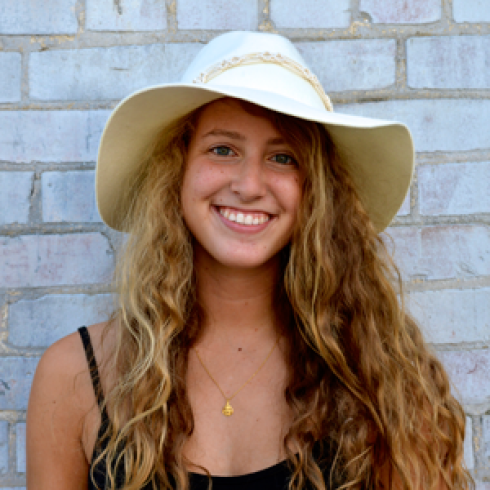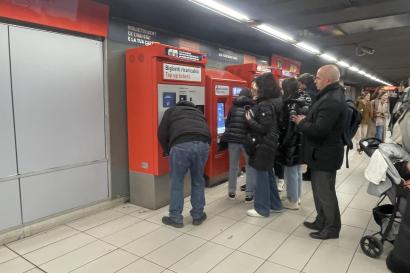
Picture your home. Do you feel scared or associate it with danger? Can you imagine what it would be like to leave everything and everyone you know behind and enter a completely foreign country?
Unfortunately, there are many out there who do this everyday. In the past year alone, Italy has received over 110,000 migrants. 4,000 attempted to cross the Mediterranean by boat and never made it. So what does this mean?
I’ve been living in Italy for 3 months now, and never realized the extent to which the migration crisis is affecting this country. What I see in the news is always a lot of data and its difficult to take those numbers and put a real person, each with their own story, behind it. I wanted to learn more so I reached out and was put in touch with a woman who works at the World Cultures Center, a social welfare department for immigration policies in Milan. I spent an hour in her office, asking questions about the crisis and how she and her colleagues are working to help. It was an eye-opening interview, and I thought that the least I can do is start by sharing what I’ve learned with all of you.
Many words are used in the news to describe the people crossing the borders – refugees, migrants, political asylum seekers…What are the differences between these terms?
Migrants are the people on the move, traveling from point A to point B. They have left their respective countries to go to a safer place. When migrants arrive in Italy, if they decide to stay, they have to apply for political asylum, which means they go through the process of getting a permit stating that they have permission to stay. This process can take up to a few months and there is no guarantee that the request will be granted right away. Migrants have to speak to a commission of usually about 5 government officials that listen to their stories and ask why they applied for political asylum. The reasons can be anywhere from religious to political. If the commission accepts, the political asylum seekers become refugees and have protection from the government. If they say no, the request can be appealed up to 3 times in court and most likely the asylum seekers will receive permission to stay in the end.
How does the World Cultures Center play a role in all of this?
We are all social workers who assist refugees and political asylum seekers. They come to this office because they need social support, since about 80% are extremely poor. We help organize all the documents they need to stay in Italy, explain their rights, and provide support by telling them where they can find free food and places to sleep in Milan. Our most important, and challenging task is to help asylum seekers prepare for the commission. A majority of people don’t have any skills so we have to teach them how to tell their story in the right way. Since most can’t speak any Italian or English, it becomes very difficult.
Where do the migrants come from?
Everywhere. Somalia, Ethiopia, Pakistan, Afghanistan, Sudan, Nigeria, Egypt, and Libya to name a few.
How many people seeking assistance come through your office per month?
Around 300. 80% are men, and 80% are under the age of 30. First they come and try to get protection for themselves as well as jobs, and then get the rest of their family to come.
Is it difficult for refugees to find jobs in Italy?
It’s difficult for Italian citizens to find jobs in Italy. If these refugees don’t speak English or Italian, then it’s near impossible. That’s why many try to leave Italy, but other countries in the EU have stricter policies and don’t let them in, pushing them back here.
How is the migration crisis affecting Italy?
Italy is a welcoming country. We don’t push out refugees. In Milan specifically, people get scared at first when they see foreigners sleeping on the streets. They think the biggest problem we have is a lack of accommodation, but that is only the beginning. Once the Milanese realize this, their perspectives change and they begin to help willing by sending clothing, food, and money to the many organizations we have in the city.
What resources are you lacking?
Up until 2-3 years ago we had enough accommodations, but now there isn’t enough room in Milan. We have the capacity of about 3,000 beds, however today there are over 4,000 refugees in Milan. There are 2 major issues with this. The first is that there are over 400 unaccompanied children in the city. Children under the age of 18 have priority for beds and its also more expensive because they need educators and a lot of support. Adults only need a bed and food. The other big problem is many of the people have mental disabilities, most of which stem from being tortured and experiencing the other terrible conditions in their original countries. Within two years, Milan has treated 283 victims, and we are the first city in Italy to provide this kind of care.
What can American students do to help and get involved?
We need as many volunteers as we can get. Teaching English and Italian is critical, as well as assistance in taking people to services such as hospitals, schools, even the grocery store. There is an endless number of non-profits scattered around Milan, all working to help migrants and refugees. We will never run out of things to do, especially now as more and more migrants are flooding in. For students that aren’t physically here, collecting money and sending it to these non-profits would be the best way to get involved.
To learn more about the migration crisis in the EU, check out http://www.unhcr.org.

Abby Grinberg
Abigail is our 2016-17 IES Abroad Blogger of the Year! Abigail studies Economics and International Studies with a minor in Business Administration at Brandeis University—where she is also an IES Abroad Ambassador. As a Fall 2016 and Spring 2017 Blogger, Abigail illustrated her year abroad in Milan through her insightful posts and candid photography that navigated her growth in the historical city of Milan.







